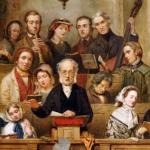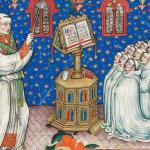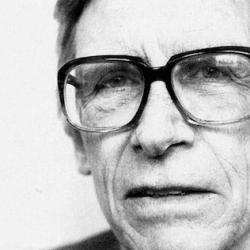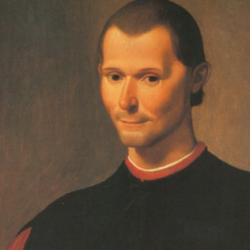Judd Owen’s Religion and the Demise of Liberal Rationalism calls on liberals to pay attention to the foundational issues raised by liberalism’s antifoundational critics.
Owen recognizes that liberalism does not propose a “neutral” theory of politics. While political regimes do not take sides in religious disputes, and thus exercise a practical form of neutrality, liberalism cannot be justified on a “neutral” basis. Rather, liberalism has a theory of man, the state, the good life, and the place of religion in public affairs.
As Owen puts it in his opening paragraph, “The liberal institutions concerning religion – the separation of church and state, religious pluralism, religious freedom – were originally justified on the basis of a comprehensive philosophic doctrine, covering human nature, the purpose of political society, and the proper domain of religious faith.”
These doctrines arose from the Enlightenment. They claimed to be the product of rationalist critique of society and rational reflection on the world and human history. There are the rational “doctrines” that he wants to revive.
Current theorists have not done a good job of making the case for liberalism, especially in relation to religion. Owen’s analysis of Rawls is particularly severe.
Rawls explicitly raises the question of what to do with “nonliberal religious citizens.” He recognizes that they hold to “comprehensive doctrines” and does not claim that these doctrines are reasonable or not. Doctrines are reasonable or unreasonable in any case, only people, and what Rawls looks for from nonliberals is reasonableness in “how we act upon our beliefs, or in how we interpret their political ramifications or lack thereof” (116).
Stephen Macedo, a Rawlsian, puts it this way: “the political liberal offers a bargain to moderates in all comprehensive camps, whether fundamentalist Protestant or autonomy-pursuing liberals,” a bargain that permits them to participate so long as they “acknowledge the political authority of liberal public principles” (117-8).
Owen recognizes that this invitation to show “political respect” is “tantamount to a demand that they abandon their fundamentalism”: “Does it not partly define the fundamentalist to believe that God has issued certain moral commandments that are unambiguous and nonnegotiable, or truly fundamental? If so, a fundamentalist who ‘acknowledges the political authority of liberal public principles’ is no longer a fundamentalist” (117).
A “willingness to set God’s will for human life aside in the political realm requires not merely a change in attitude toward one’s beliefs; it requires a change in one’s beliefs concerning God’s will. One must come to believe that it is consistent with God’s will that it be set aside in politics.” Rawls says he is doing no more than asking fundamentalists to “bracket” their fundamentalism in public life; but in fact “liberalism depends on religion’s being substantively transformed, not bracketed.” The constraints put on public expressions of nonliberal faiths does not leave the private realm untouched.
Macedo is more straightforward: “If a constitutional regime is to succeed and thrive, it must constitute the private realm in its image, and I tmust form citizens willing to observe its limits and able to pursue its aspirations” (quoted 117). Liberalism has a necessary “transformative agenda” (117).
Religious goods cannot function as the common public good. And that means that believers have to subordinate what they believe is the actual common good – the salvation of humanity – to the virtues of toleration and meting others halfway (118).
Rawls’s entire theory is designed to avoid the necessity to resolve, or even debate, ultimate truth. But he finally cannot avoid it: “In affirming a political conception of justice we may eventually have to assert at least certain aspects of our own comprehensive religious or philosophical doctrine. . . . This will happen whenever someone insists, for example, that certain questions are so fundamental that to insure their being rightly settled justifies civil strife. The religious salvation of those holding a particular religion, or indeed the salvation of a whole people, may be said to depend on it. At this point we may have no alternative but to deny this, or to imply its denial and hence to maintain the kind of thing we had hoped to avoid” (119).
Owen hammers home the point: “since the liberal state must act, and since it cannot take any religious prescription as authoritative for its actions, the liberal state in principle denies that there are any true, politically relevant religious prescriptions. Liberalism rests on a theological premise” (119), a negative theology that God cannot pronounce any Thou Shalts or Thou Shalt Nots for public life.
Owen thinks this is ultimately an abandonment of politics itself. There is no more fundamental political question than this: “For the sake of what does the political order exist?” Rawls makes it impossible for liberalism “to engage other views, on the remarkable grounds that to do so would carry it beyond the political. ‘Political liberalism,’ by avoiding the political question, reveals itself to be essentially anti-political” (120).
And in avoiding argument on first principles, Rawlsian liberalism is left with nothing but bare assertions: “Liberalism’s opponents may vary tremendously in their reasonableness, and some may indeed be the most dangerous kinds of fanatics. But they at least are willing to say something in their own defense. By covering its eyes, ears, and mouth, does not political liberalism exhibit a most naked sort of dogmatism?” (120-1).












